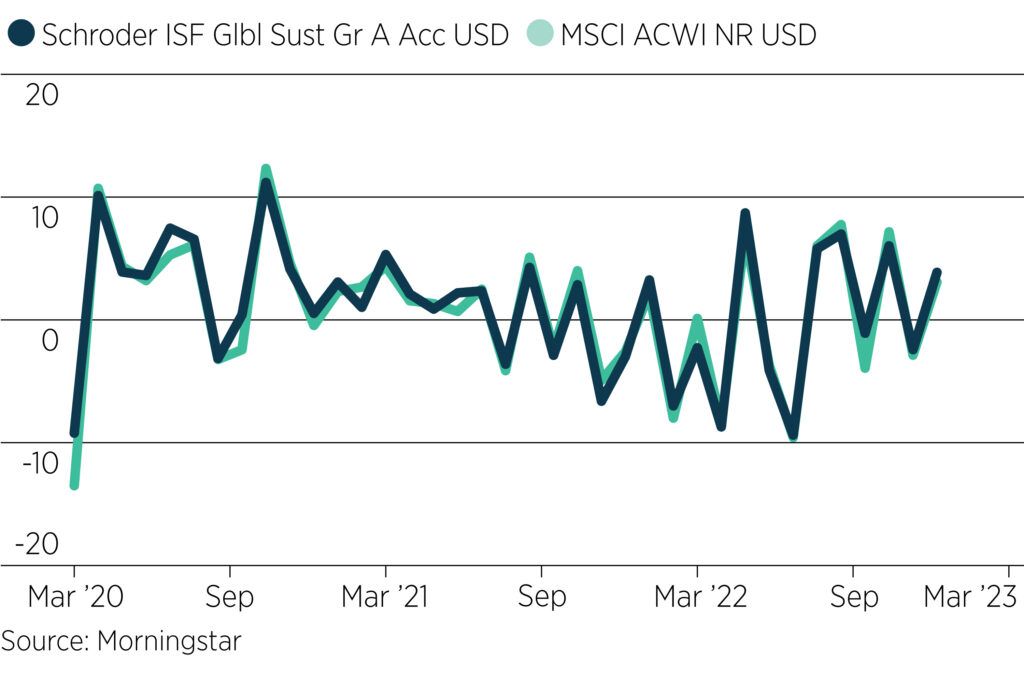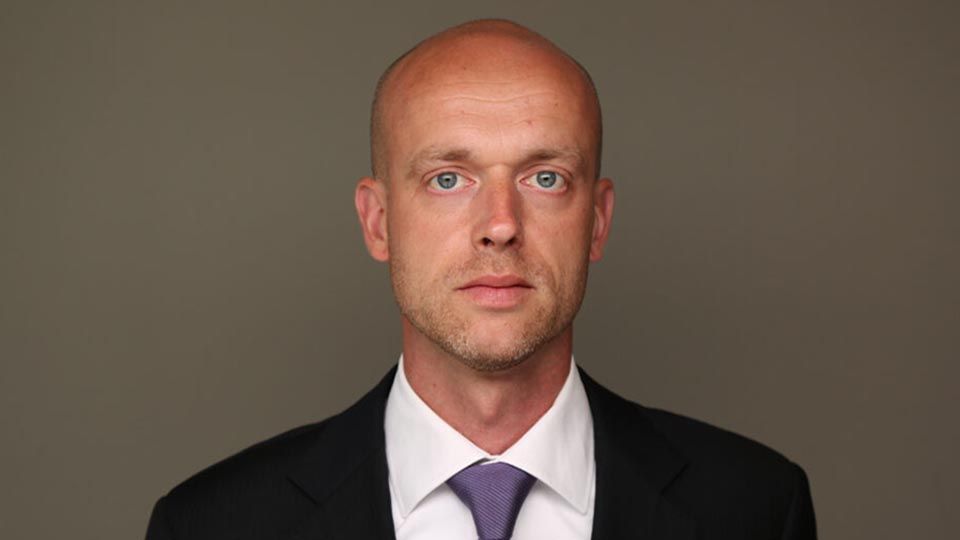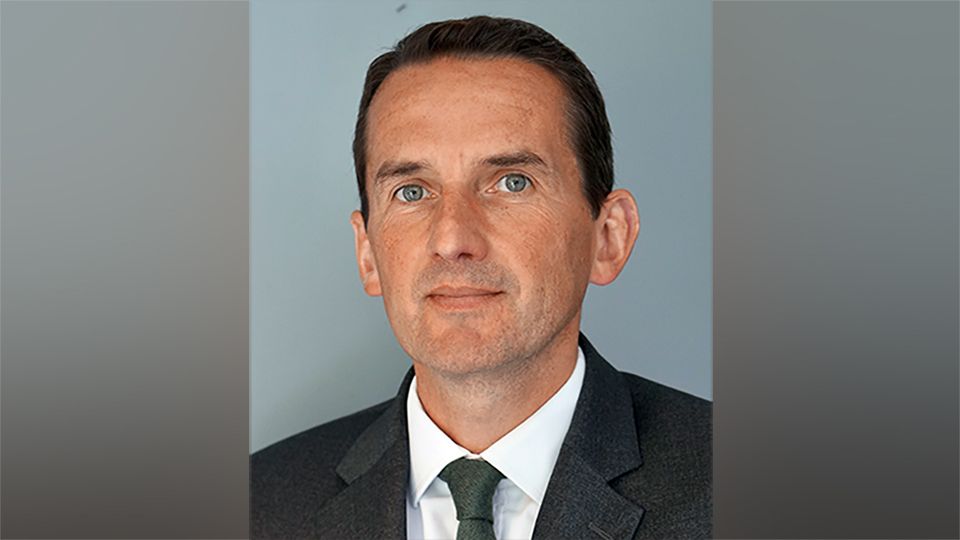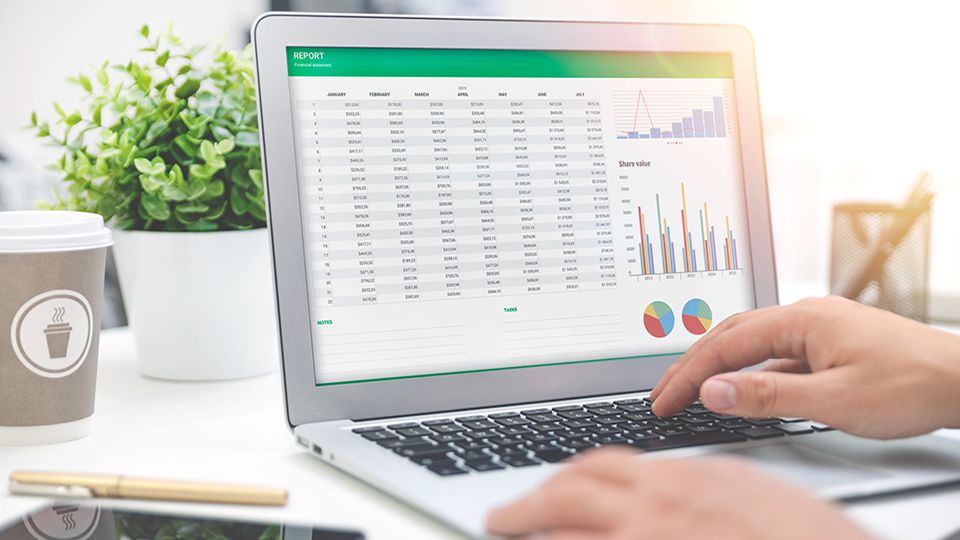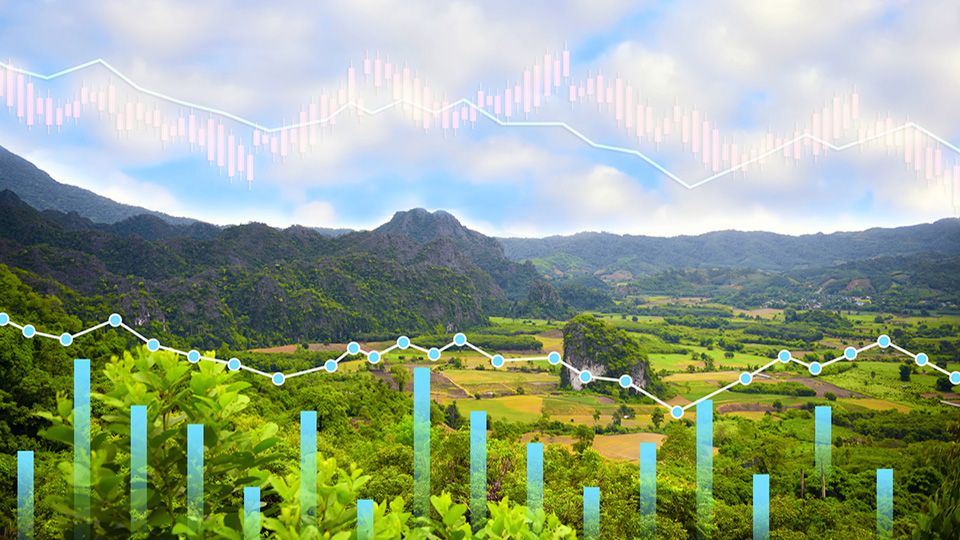In this series for ESG Clarity Asia, Morningstar dives into ESG funds available in Asia, analysing their investments, performance and ESG credentials.
For this latest article, Morningstar’s Ronald van Genderen takes a look at the Schroders Global Sustainability Growth fund.
The fund’s ESG approach is more qualitative than quantitative (relying on data or ESG ratings). Central to it is its so-called SQ framework, where the team assesses the ESG credentials of a company along a list of questions, which is divided into seven groups: environment, employees customers, regulators and governments, suppliers, communities and shareholders. The criteria are strict as around 50% of the companies that would be considered as portfolio candidates based on fundamental financial criteria are rejected for ESG reasons.
Since the introduction of this approach in November 2017, the portfolio’s Asian exposure has hovered around 20% within a 15-25% range. This has been well inline with the typical Asian exposure for the MSCI ACWI and MSCI ACWI Growth indices, but significantly higher than the average Asian allocation for peers within the Morningstar category global large-cap growth equity. As per the end of March 2023, the portfolio’s allocation to Asia stands at 16.79% versus 12.61% for its category peers.
This Asian allocation was represented by seven portfolio holdings. The financial services sector was dominant under these holdings, as they included Australian Macquarie Group, Indian HDFC Bank, Hong Kong AIA Group and Singaporean DBS Group Holdings.
Meanwhile, the team has also found opportunities in Japanese industrials (which is a very heterogenous sector) with holdings in Recruit Holdings and Sekisui Chemical. The seventh holding is Taiwan Semiconductor Manufacturing Co from Taiwan.
Most of these holdings have been in the portfolio for multiple year. Only Macquarie Group and Sekisui Chemical were added last year, while PT Bank Central Asia was sold in 2022.
The strategy invests more in companies that either have low ESG risks or have managed these risks well. It also doesn’t hold any fossil fuel-based energy companies.
Schroders fund displays consistency
